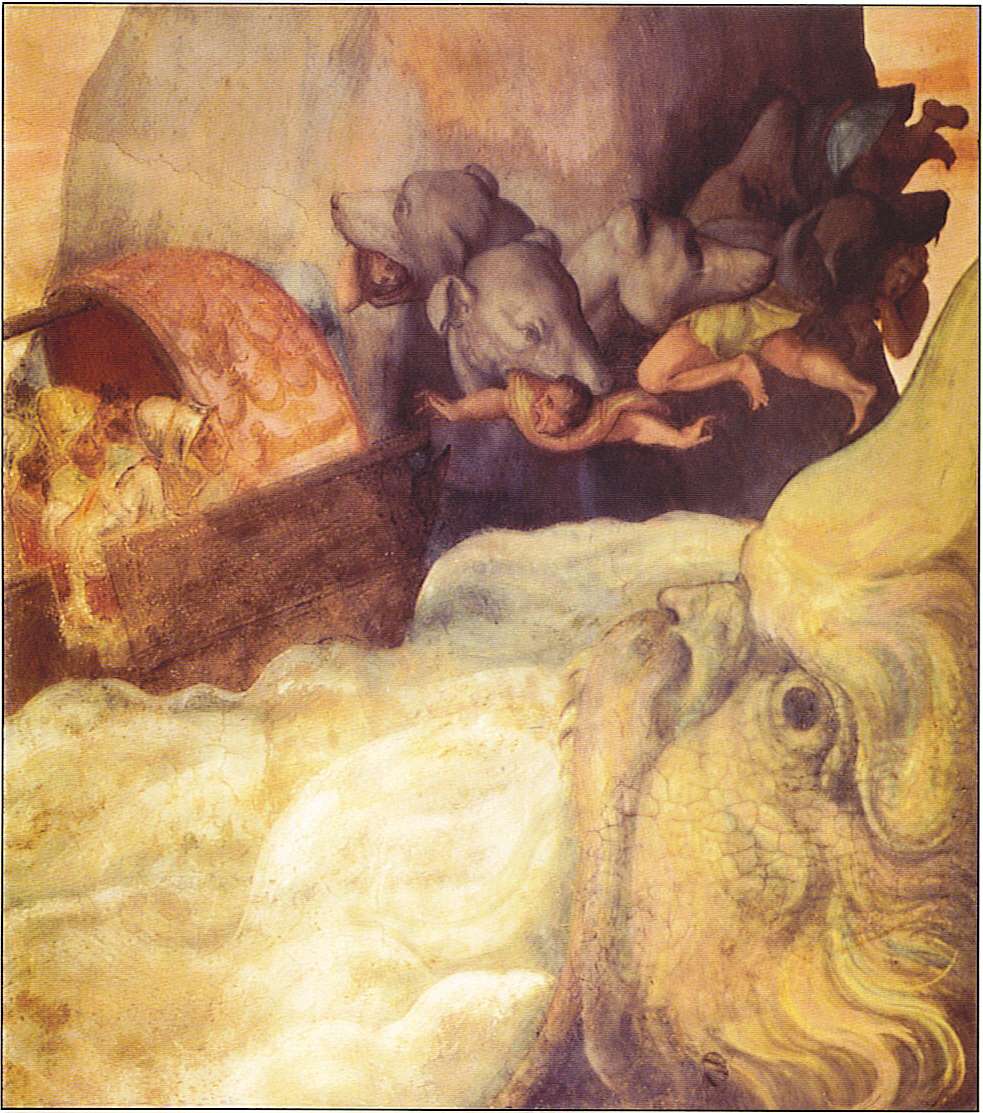
Fresco by Alessandro Allori (1535-1607)
Read: Isaiah 43: 1-13
When you pass through the waters, I will be with you; and through the rivers, they shall not overwhelm you; when you walk through the fire you shall not be burned, and the flame shall not consume you (Isaiah 43:2, NRSV)
If you’ve ever found yourself “between a rock and a hard place,” you’ll know what it feels like to be in a situation where there are no good options.
In the ancient world they had a story that described this in especially vivid terms. If you’ve read Homer’s Odyssey, you’ll remember the story of Scylla and Charybdis. Scylla was the 6-headed monster rock who guarded the eastern side of the straits of Messina at the southern tip of the Italian peninsula. Charybdis was an equally dangerous monster whirlpool who guarded the western side. Trying to steer clear of one meant your ship fell prey to the other—as Odysseus found out. His ship made it through, but not before six of his sailors lost their lives in the jaws of the six-headed Scylla—one to each head, presumably.
I hadn’t thought much about Scylla and Charybdis since my classics major in college. So, I was especially startled when my guide pointed them out to me as we drove down the coast of Calabria. “There they are,” he observed with a nonchalant gesture toward the sea.
“Wait,” I responded—straining my eyes toward the narrow straight that separates the toe of the Italian “boot” from the island of Sicily. “You mean that’s a real THING?”
“Yes,” he replied. “Very dangerous. Big rock; bad whirlpool.”
That Scylla and Charybdis are a “real thing” would not be news to the people who have come to Calabria to work in the orange groves. Even if they don’t know the ancient story, they know the danger of being in a situation with no good options.
Bear in mind that these people have already managed to escape the deadly whirlpool that is the Mediterranean Sea. In 2023 alone, the journey across the water claimed more than 3000 lives. Over the last decade, the total is closer to 30,000. There is good reason to suspect that the actual tally is even higher. Fleeing from their homes because of war, persecution, and poverty, these people risk everything for a better life. They do not risk the journey because they can; they risk it because they must.
Having escaped Charybdis, however, they still need to avoid Scylla. For those who find their way to the migrant camps in southern Italy, there are new dangers.
My guide me past one of these camps. There is no electricity, no running water, and to garbage service. If the men are lucky enough to have a bike to ride to the fields where they work, they risk being hit by a car on dark roads. Fires and fights break out on a regular basis. Once young man (age 27) was shot trying to help a friend bring back a piece of tin from a garbage heap. (They were trying to build a shelter.) Not surprisingly, many of the men who have been there for a while develop serious mental problems. Not to be overlooked in this litany of dangers is the ever-present prejudice, which greets these people around almost every corner and keeps them in such camps.
All of these dangerous conditions—like Scylla’s many heads—are attached to a powerful body. The unofficial—but very real—power here goes by the name of Ndrangheta. Considered to be one of the most powerful organized crime groups in the world (think mafia, only worse), this contemporary monster controls the port and traffics in all manner of things—including drugs and people. When people talk about this group, they avoid saying its name—or if they must, they say it in hushed tones. It’s as if there is an unwritten rule to refer to it as a monster that “must not be named.”
Are you beginning to understand why I said these men were caught between Scylla and Charybdis?
A lucky few of them have found a way to navigate safely through these dangerous waters, however. They are the ones who have found their way to a small hostel called Dambe So. The name means “house of dignity.” Dignity is precisely what this place provides for its residents. Their life is still very hard, but at the end of a day working in the orange groves, they can come back to a place of comfort and safety. Each two-bedroom apartment includes a bathroom and a kitchen/living room. There is also a common room downstairs where they can get a coffee after work and access to a laundry room. Occasional medical checks and regular Italian lessons are offered by volunteers.
Although the hostel is supported by Mediterranean Hope, it is run by the residents themselves. That’s part of what makes it a “house of dignity.”
You could also call it a small boat that’s helping a handful of men navigate some very dangerous waters.
Reflection/Action:
- The promise of Isaiah 43:1-14 was originally given to the covenant people in the Old Testament. Does it offer comfort for today? To whom? How?
- Use your own experience of being “between a rock and a hard place” to cultivate your empathy for others. Where might that empathy be leading you? What can you do to help someone else navigate a dangerous situation?
Prayer: Help us to respond to the immigration crisis in ways that offer dignity and safety to those in need.
